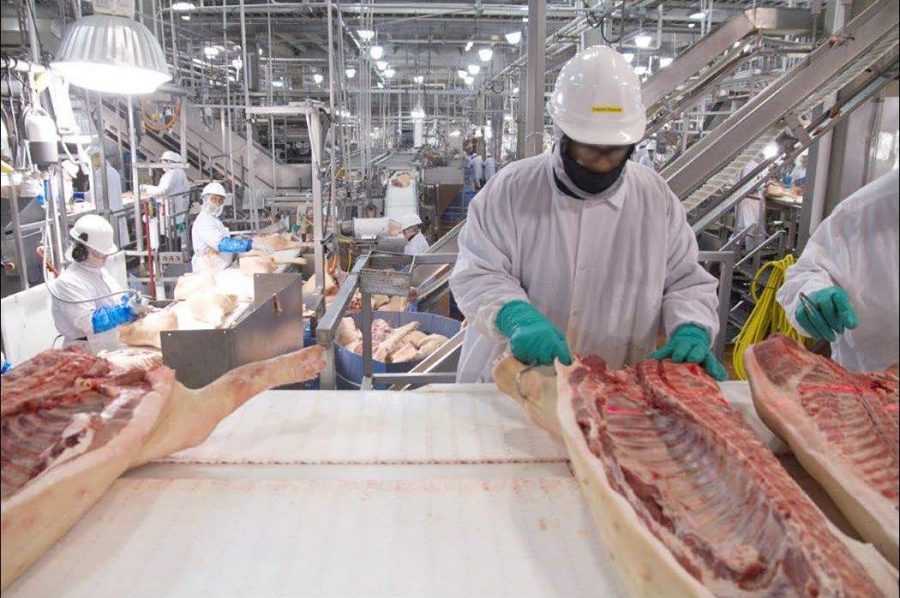Meatpacking Companies Fail to Protect Workers During COVID-19
U.S. Government Accountability Office
Workers in a hog slaughter and processing plant use hooks and other tools.
COVID-19 has devastated the meat processing industry. The Centers for Disease Control and Prevention (CDC) has reported 16,000 infections and 86 deaths among meatpacking workers – and this is likely a low figure, as many companies have attempted to conceal the true numbers. Eighty-seven percent of all the cases of infections in April and May occurred among racial and ethnic minorities. While Vice President Michael Pence said that the administration would work “tirelessly” to ensure the safety of the workers, the reality does not reflect his promise.
Many companies such as Triumph Foods have lobbied local members of Congress for the removal of CDC-implemented safety guidelines in the industry and have been successful in undoing progress. The CDC has overruled enforcement of various safety procedures, including social distancing and providing personal protective equipment (PPE), claiming that the “effectiveness (of the procedures)…[are] not known.”
This complete abuse of power, in which corporations ignore the welfare of workers and seek only to increase profit, is not a phenomenon that is unique to the pandemic. COVID-19 has merely highlighted the shortcomings of an industry that has consistently ignored the basic rights of its workers.
Inequality between workers and corporations is an inherent part of the way the meat industry has evolved over the last half-century. In “Restructuring of the US Meat Processing Industry and New Hispanic Migrant Destinations,” William Kandel and Emilio A. Parrado note that, with technological advancements in the 1970s, the process of manufacturing meat shifted from a “semi-skilled butchering” to assembly line production. As a result, conglomerates monopolized an industry once dominated by small businesses, opposing and dissolving labor unions in the process. Increasing demand for cheap meat led companies to focus on low-skill, low-wage labor under extremely dangerous conditions – jobs only immigrants with few other options are willing to take.
Since the 1970s, the industry has become increasingly reliant on Latinx immigrants, with 20-25% of the workers undocumented. Workers under H-2 visas are offered basic legal protection; however, the right to reside in the U.S. is based upon employer sponsorship. This means workers are incentivized to remain in jobs, even if working conditions are dire and employers do not comply with legal protections or provide legally required benefits. The case is even worse for undocumented immigrants, who do not have any protection under the law, and fear the possibility of being deported. These conditions lead to frequent injuries and illnesses in slaughterhouses. In 2015, there were about 26,600 cases of nonfatal injuries and illnesses, and 4,910 cases where workers missed one or more days of work due to exhaustion.
The treatment of workers in the meat-processing industry must be improved. The pandemic further highlights this need. At the very least, there must be an increase in union protections for workers’ rights and systemic reform in immigration laws to ensure that workers can report exploitation. The systemic injustices in the meat-processing industry has exacerbated the deaths caused by COVID-19. Now that we are aware of these cruelties, it is time for change.






